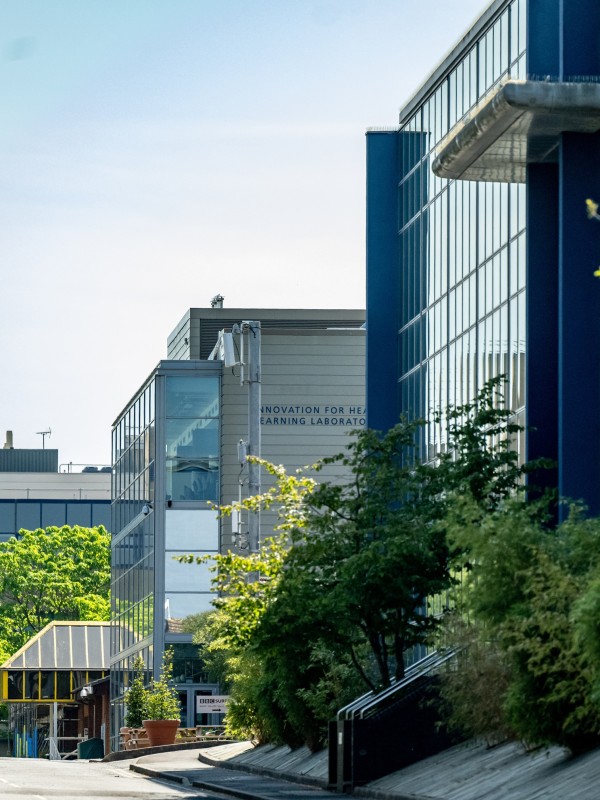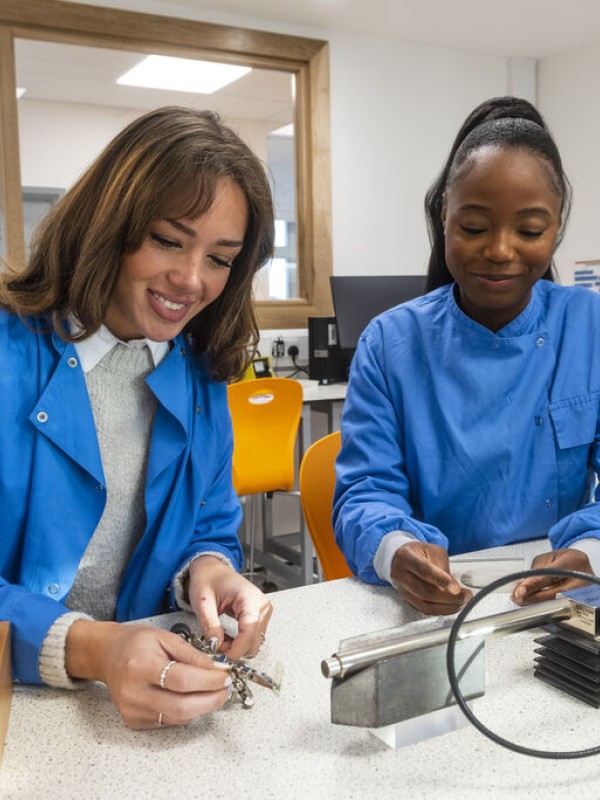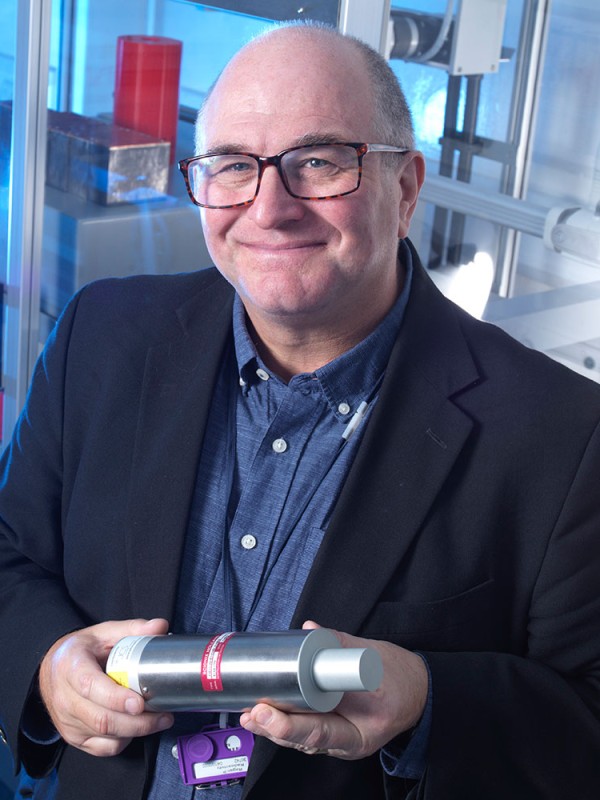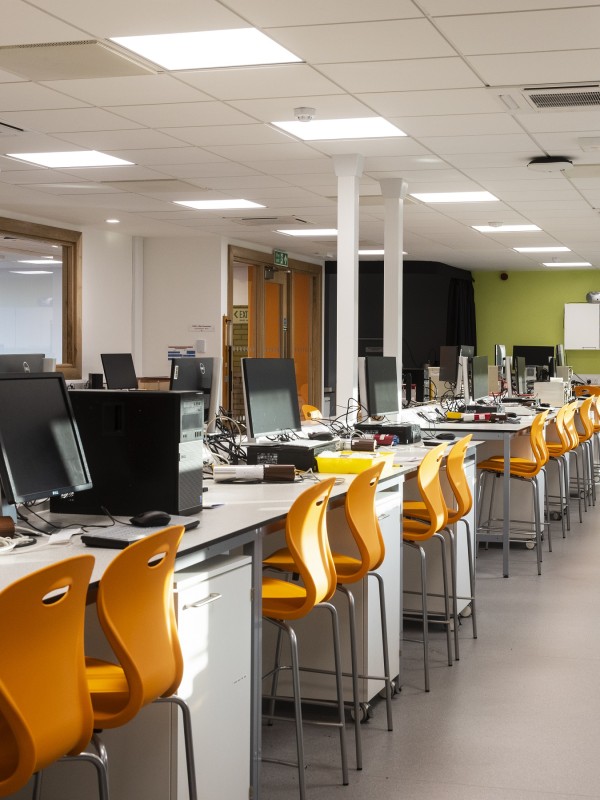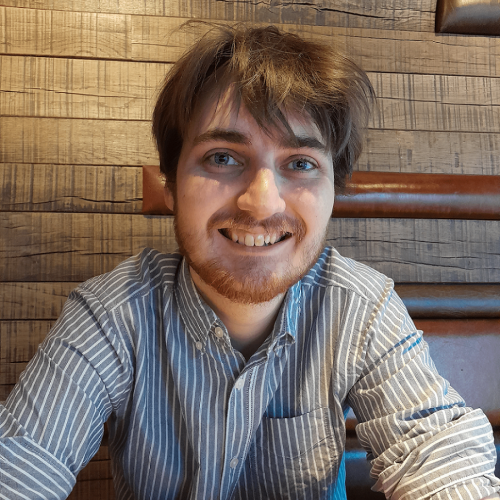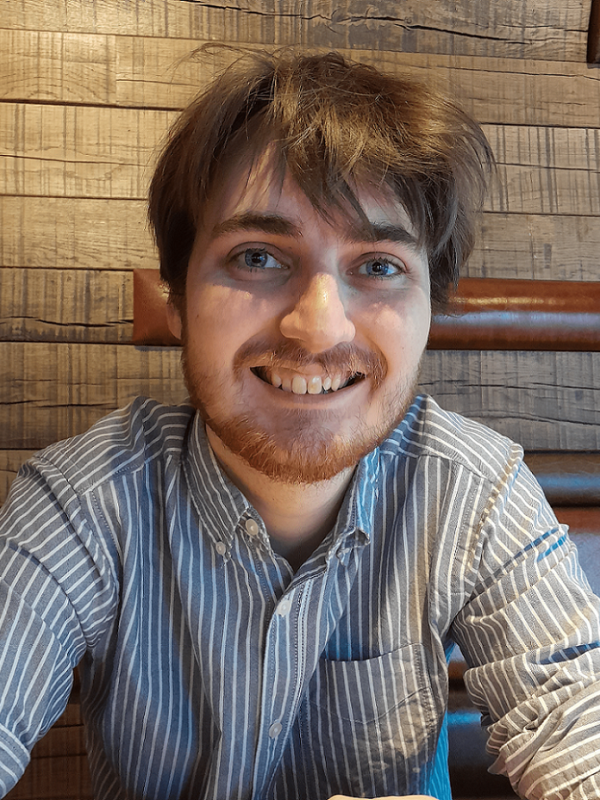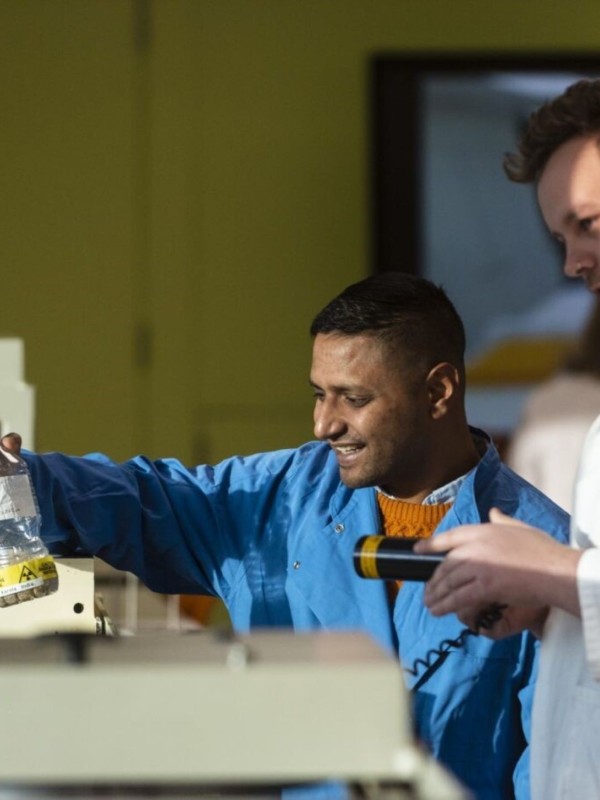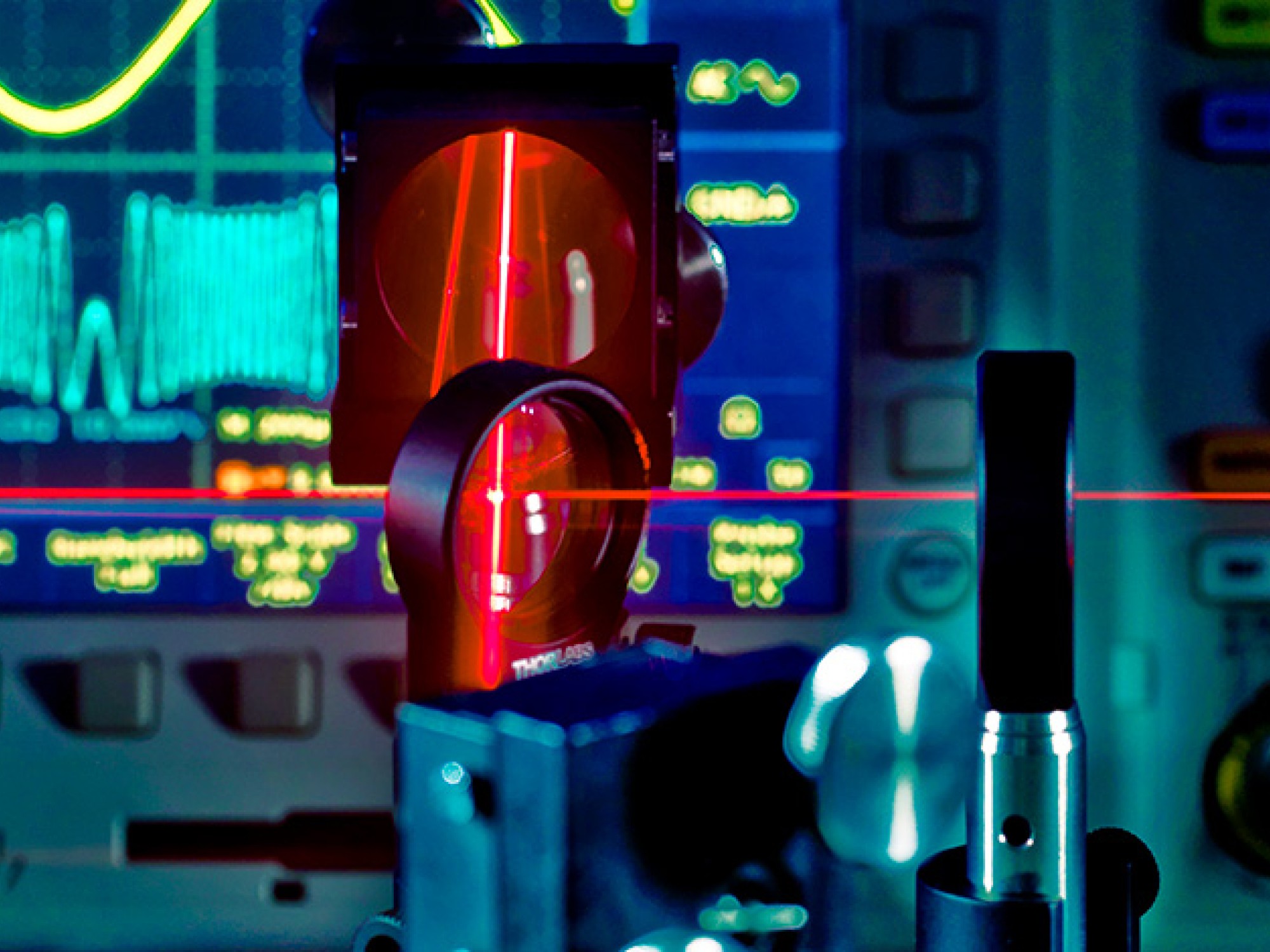
- Physics
MSc — 2026 entry Physics
Physics is a foundational science that seeks to understand the fundamental laws governing the universe. Our Physics MSc degree offers a comprehensive exploration of the fundamental principles and advanced concepts in this exciting field.
4,138+ people have created a bespoke digital prospectus
Why choose
this course?
Physics is simply the study of nature. And studying for our master's in physics means aspiring to answer some of nature’s most complex questions. This course allows you to explore and expand our understanding of the world and will prepare you to address the challenges our society faces.
Our School of Mathematics and Physics is home to inspirational research activity and excellent teaching. Our research spans the breadth of modern physics and is supported by advanced facilities.
We also collaborate with a variety of partners across academia, public life and industry, including the National Physical Laboratory.
EDI status
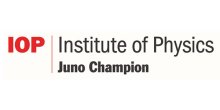
What you will study
Our Physics master's is a flexible course, allowing you to tailor your studies by selecting modules from a wide range of fundamental and applied physics topics. The application-focused modules are co-taught by practitioners in public service and industry to ensure students gain insight relevant to the workplace.
An 11-week dissertation project will give you the opportunity to apply your knowledge and skills to a project relevant to pioneering research. Many of these projects are undertaken in collaboration with leading industry partners.
Equality and diversity
We’re committed to fostering the next generation of physicists in an environment that is diverse and inclusive, ensuring equal opportunities for all, independent of race, age, gender, sexual orientation, disability or other protected characteristics.
We’re a member of the Institute of Physics’ equality and diversity initiative, Project Juno, which rewards physics departments for promoting gender equality in physics. We are proud to have been awarded Juno Champion status.
We also have an active Equality, Diversity and Inclusion (ED&I) group within the School of Mathematics and Physics, which aims to grow the diversity of our student body and ensure a welcoming environment for everyone.
Teaching Assistant Scheme
Every year, our Teaching Assistant Scheme enables students on our Physics MSc programmes to earn while they study, providing teaching support to undergraduate students. Teaching assistants are involved in a range of duties, including laboratory supervision, in-class tutorial support and support with computing classes. Find out more about the Teaching Assistant Scheme.
You’ll study four 15-credit modules per semester if you join this course full-time. Full-time students complete four modules per semester, while part-time students typically complete two modules per semester.
The dissertation topics you can choose from are usually allocated towards the end of the spring semester. Dissertation project work will be carried out during the summer period. Part-time students will work on their dissertation in the summer of their second year.
The structure of our programmes follows clear educational aims that are tailored to each programme. These are all outlined in the programme specifications which include further details such as the learning outcomes:
Modules
Modules listed are indicative, reflecting the information available at the time of publication. Modules are subject to teaching availability, student demand and/or class size caps.
The University operates a credit framework for all taught programmes based on a 15-credit tariff, meaning all modules are comprised of multiples of 15 credits.
Course options
Year 1
Semester 1
Optional
These lectures describe in detail the principles of radiation detection, measurement and dosimetry.
View full module detailsLectures provide a detailed and systematic overview of atomic and nuclear physics including basic energetics of radioactive decay. An introduction on interactions of radiation with matter and introductory material describing detector operation.
View full module detailsThe module will provide students with practical skills and background knowledge needed to work in a radiation laboratory. Laboratory sessions are designed to provide the student with practical experience in handling radioactive substances, detectors and instrumentation.
View full module detailsThis course starts with an overview of human biology, followed by a discussion of the nature of the interaction of ionising and non-ionising radiation with biological systems. The course emphasises the effects at the cellular level and the impact that this has on the individual and across the population. The behaviour and effects of ingested and inhaled radionuclides are also covered.
View full module detailsThe module will provide students with practical skills and background knowledge needed to work in a clinical setting. It includes two seminars/workshop on research ethics and intellectual property and a set of radiation laboratory experiments.
View full module detailsThis module introduces six advanced topics in physics. Students will be assessed on only four of these topics, with individuals self-selecting the contact sessions, coursework options and exam questions that reflect their preference. An indicative list of these topics include: biological physics, special relativity, particle physics, cosmology, nuclear astrophysics, and quantum computing.
View full module detailsQuantum computers are built around a central processing unit which is a physical device operating according to the rules of quantum mechanics. This module teaches the principles of how quantum processors are built and how they function. The module follows the superconducting architecture, which currently has a significant role in the industry and has been widely studied and implemented. The module will start with reviewing the basic physics required to understand superconducting qubits and the theory of superconducting circuits. It will then continue to the operation of such qubits to perform gates, storage, and readout. After studying the basic building blocks and operations, the module will discuss early demonstrations of important algorithms on superconducting processors. These will lead us naturally to the important topics of improving performance through protection of coherence, advanced control, and validation. The last part of the module will focus on state-of-the-art superconducting processors, focusing on the various challenges in scaling up and the strategies that the industry is pursuing to overcome them.
View full module detailsThe first half of this module covers various applications of statistical physics to model share prices and financial markets. This mathematics is then applied to calculating prices for some examples of financial derivatives. The second half of the module then focusses on optimization problems with examples including logistics, aerospace, traffic control and finance (which includes pricing, risk managements and portfolio optimizations in financial markets). There is a particular focus on the role of quantum optimization and the use of quantum computer algorithms in finance.
View full module detailsSemester 2
Compulsory
All students aiming for the MSc degree qualification undertake an MSc dissertation project. Students choose a project either from a list of proposed topics within the University, or in some cases arrangement is made for the project to be undertaken in industrial, research or hospital-based environment. The majority of part-time students arrange to undertake the project in their place of work. Students are assigned a supervisor relating to the project chosen. Students undertaking their project outside of the University are assigned both an internal and an external supervisor. The work is assessed as follows: Project write-up A write up of no more than 40 pages in total, including title page, brief abstract, text, diagrams and references must be submitted. Supervisors will give guidance on the layout of the project and the first draft of material where appropriate. When referencing in your written work, you should use the Harvard referencing system unless otherwise directed by the Module Co-ordinator. Further information relating to referencing in your work, can be found on the University Library website at http://www.surrey.ac.uk/library/subject/bibref/
View full module detailsOptional
This 15-credit M-Level module introduces important topics and techniques in theoretical physics that have a wide range of applications in many areas physics and engineering and which the students will not have met before. Both the mathematical techniques and their applications are covered at a level appropriate for Masters level students coming to the end of their degree and who should be able to pull many different ideas in theoretical physics together.
View full module detailsRadiations of various types are widely used for therapeutic purposes. The bulk of hospital physicists work with ionising radiation and hence the topic is fundamental for anyone entering the profession. In this module, an introduction is given to radiotherapy systems, for beam delivery, guidance and dosimetry. Around one-third of the module is then devoted to a number of key uses of non-ionising radiation in delivery of various therapies, with sources based on laser light, uv and high-intensity focused ultrasound.
View full module detailsIonising radiation is widely used for diagnostic purposes, and multi-modality imaging is now becoming ubiquitous. The majority of hospital physicists work with ionising radiation and hence the topic is fundamental for anyone entering the profession. In this module, an introduction is given to imaging systems and image perception. Detailed lectures then cover X-radiography, X-ray computed tomography, radiopharmaceuticals, nuclear medicine. The lectures will be supported by an assessed nuclear medicine practical and by tutorials in image processing and image registration.
View full module detailsThe module is designed to give students knowledge of the basic physics that underpins nuclear magnetic resonance imaging (NMR / MRI) and ultrasound, together with details of common imaging strategies.It delivers material on the basic principles of NMR and medical MRI . It also provides an introduction to ultrasound, a major non-ionising radiation imaging modality, with lectures complemented by three laboratory sessions.
View full module detailsThis module aims to provide an advanced level understanding of explosive nuclear astrophysics and the physics of stars. In particular, the course will provide an analytical underpinning of resonant reaction rates, together with the experimental techniques involved in their determination, as well as a theoretical treatment of nuclear reactions and celestial objects.
View full module detailsThis module will introduce the students to the principles and formalism of General Relativity and its applications to Black Holes and astrophysical phenomena.
View full module detailsThe course provides an introduction to nuclear energy generation and applications of nuclear science. Nuclear reactors, their physics and operation are described. Nuclear reactor safety case work is also discussed. Future potential energy generation mechanisms such including nuclear fusion will be discussed. The module will also present a range of applications of radioactivity measurement including aspects of Environmental Science and Medical Diagnogstics and treatment therapy. The module will include some aspects of calculus and first order differential equations.
View full module detailsQuantum Mechanics topics are essential building blocks for our understanding of many physical systems. The module assumes basic knowledge in quantum mechanics from modules in earlier years, but will provide a review at the beginning. Topics include a review of quantum mechanics, operator methods and applications to the harmonic oscillator, spin & angular momentum, symmetries in quantum mechanics. The second half of the module then moves beyond isolated quantum systems by addressing the topic of Quantum Entanglement and Quantum Coherence. Here the important concepts of entanglement and decoherence will be studied by developing an understanding of open quantum systems and the density matrix formalism.
View full module detailsThis module comprises two independent halves, on quantum simulations (Q Sim), and quantum biology (Q Bio).Quantum Simulation. The quantum simulation part of this module introduces students to the use of quantum computers in the simulation of physical systems using mapping of Hamiltonians from standard quantum mechanics to a representation suitable for application on quantum computers, along with a study of wavefunction ansatz design, algorithms, and error mitigation and correction.Quantum biology is the study of how quantum mechanical phenomena, such as quantum superposition, tunnelling, and entanglement, can be exploited by living systems to provide evolutionary and/or biological advantages. This half module will cover a range of biological molecules and processes that may exploit quantum effects, such as magnetoreception, photosynthetic light harvesting, and DNA mutations. The goal of this half module is to develop an understanding of how quantum processes could have an impact in nature and how this knowledge can be further used for applications in health and medical sciences. In addition, using research progress in the field of quantum biology and illustrative examples, this course will help to develop an experimental and theoretical understanding of how quantum processes may play a crucial role in maintaining the non-equilibrium state of the biomolecular systems. Many of the subjects acquired through this half module are likely to be of potential use in future project work,
View full module detailsThis module covers circuit-based quantum computers and some of the algorithms that can be implemented using them. The idea of a classical computational algorithm and its complexity is introduced, and used as a language to discuss quantum computational algorithms. Components of quantum circuits are discussed individually, and then built up to show how algorithms such as the quantum Fourier transform and Grover¿s search algorithm can be implemented, and how such algorithms can be used in applications such as factorizing integers using Shor¿s algorithm. A suitable computational frameworkis introduced and used as a tool to implement the algorithms on simulated quantum computers.
View full module detailsThe module is aimed at giving students an understanding of the use of computers in the broader context of medical physics and radiation protection. This will range from the use of Monte Carlo modelling using TOPAS for dosimetry and experimental design, to the use of Python to code simple problems related to image processing and data science. In addition, they will learn the importance of data security and data governance with specific application to a clinical context.
View full module detailsOptional modules for Year 1 (full-time) - FHEQ Levels 6 and 7
For further information regarding programme structure and module selection, please refer to the course catalogue.
Year 1
Semester 1
Optional
These lectures describe in detail the principles of radiation detection, measurement and dosimetry.
View full module detailsLectures provide a detailed and systematic overview of atomic and nuclear physics including basic energetics of radioactive decay. An introduction on interactions of radiation with matter and introductory material describing detector operation.
View full module detailsThe module will provide students with practical skills and background knowledge needed to work in a radiation laboratory. Laboratory sessions are designed to provide the student with practical experience in handling radioactive substances, detectors and instrumentation.
View full module detailsThis course starts with an overview of human biology, followed by a discussion of the nature of the interaction of ionising and non-ionising radiation with biological systems. The course emphasises the effects at the cellular level and the impact that this has on the individual and across the population. The behaviour and effects of ingested and inhaled radionuclides are also covered.
View full module detailsThe module will provide students with practical skills and background knowledge needed to work in a clinical setting. It includes two seminars/workshop on research ethics and intellectual property and a set of radiation laboratory experiments.
View full module detailsThis module introduces six advanced topics in physics. Students will be assessed on only four of these topics, with individuals self-selecting the contact sessions, coursework options and exam questions that reflect their preference. An indicative list of these topics include: biological physics, special relativity, particle physics, cosmology, nuclear astrophysics, and quantum computing.
View full module detailsQuantum computers are built around a central processing unit which is a physical device operating according to the rules of quantum mechanics. This module teaches the principles of how quantum processors are built and how they function. The module follows the superconducting architecture, which currently has a significant role in the industry and has been widely studied and implemented. The module will start with reviewing the basic physics required to understand superconducting qubits and the theory of superconducting circuits. It will then continue to the operation of such qubits to perform gates, storage, and readout. After studying the basic building blocks and operations, the module will discuss early demonstrations of important algorithms on superconducting processors. These will lead us naturally to the important topics of improving performance through protection of coherence, advanced control, and validation. The last part of the module will focus on state-of-the-art superconducting processors, focusing on the various challenges in scaling up and the strategies that the industry is pursuing to overcome them.
View full module detailsThe first half of this module covers various applications of statistical physics to model share prices and financial markets. This mathematics is then applied to calculating prices for some examples of financial derivatives. The second half of the module then focusses on optimization problems with examples including logistics, aerospace, traffic control and finance (which includes pricing, risk managements and portfolio optimizations in financial markets). There is a particular focus on the role of quantum optimization and the use of quantum computer algorithms in finance.
View full module detailsSemester 2
Optional
This 15-credit M-Level module introduces important topics and techniques in theoretical physics that have a wide range of applications in many areas physics and engineering and which the students will not have met before. Both the mathematical techniques and their applications are covered at a level appropriate for Masters level students coming to the end of their degree and who should be able to pull many different ideas in theoretical physics together.
View full module detailsRadiations of various types are widely used for therapeutic purposes. The bulk of hospital physicists work with ionising radiation and hence the topic is fundamental for anyone entering the profession. In this module, an introduction is given to radiotherapy systems, for beam delivery, guidance and dosimetry. Around one-third of the module is then devoted to a number of key uses of non-ionising radiation in delivery of various therapies, with sources based on laser light, uv and high-intensity focused ultrasound.
View full module detailsIonising radiation is widely used for diagnostic purposes, and multi-modality imaging is now becoming ubiquitous. The majority of hospital physicists work with ionising radiation and hence the topic is fundamental for anyone entering the profession. In this module, an introduction is given to imaging systems and image perception. Detailed lectures then cover X-radiography, X-ray computed tomography, radiopharmaceuticals, nuclear medicine. The lectures will be supported by an assessed nuclear medicine practical and by tutorials in image processing and image registration.
View full module detailsThe module is designed to give students knowledge of the basic physics that underpins nuclear magnetic resonance imaging (NMR / MRI) and ultrasound, together with details of common imaging strategies.It delivers material on the basic principles of NMR and medical MRI . It also provides an introduction to ultrasound, a major non-ionising radiation imaging modality, with lectures complemented by three laboratory sessions.
View full module detailsThis module aims to provide an advanced level understanding of explosive nuclear astrophysics and the physics of stars. In particular, the course will provide an analytical underpinning of resonant reaction rates, together with the experimental techniques involved in their determination, as well as a theoretical treatment of nuclear reactions and celestial objects.
View full module detailsThis module will introduce the students to the principles and formalism of General Relativity and its applications to Black Holes and astrophysical phenomena.
View full module detailsThe course provides an introduction to nuclear energy generation and applications of nuclear science. Nuclear reactors, their physics and operation are described. Nuclear reactor safety case work is also discussed. Future potential energy generation mechanisms such including nuclear fusion will be discussed. The module will also present a range of applications of radioactivity measurement including aspects of Environmental Science and Medical Diagnogstics and treatment therapy. The module will include some aspects of calculus and first order differential equations.
View full module detailsQuantum Mechanics topics are essential building blocks for our understanding of many physical systems. The module assumes basic knowledge in quantum mechanics from modules in earlier years, but will provide a review at the beginning. Topics include a review of quantum mechanics, operator methods and applications to the harmonic oscillator, spin & angular momentum, symmetries in quantum mechanics. The second half of the module then moves beyond isolated quantum systems by addressing the topic of Quantum Entanglement and Quantum Coherence. Here the important concepts of entanglement and decoherence will be studied by developing an understanding of open quantum systems and the density matrix formalism.
View full module detailsThis module comprises two independent halves, on quantum simulations (Q Sim), and quantum biology (Q Bio).Quantum Simulation. The quantum simulation part of this module introduces students to the use of quantum computers in the simulation of physical systems using mapping of Hamiltonians from standard quantum mechanics to a representation suitable for application on quantum computers, along with a study of wavefunction ansatz design, algorithms, and error mitigation and correction.Quantum biology is the study of how quantum mechanical phenomena, such as quantum superposition, tunnelling, and entanglement, can be exploited by living systems to provide evolutionary and/or biological advantages. This half module will cover a range of biological molecules and processes that may exploit quantum effects, such as magnetoreception, photosynthetic light harvesting, and DNA mutations. The goal of this half module is to develop an understanding of how quantum processes could have an impact in nature and how this knowledge can be further used for applications in health and medical sciences. In addition, using research progress in the field of quantum biology and illustrative examples, this course will help to develop an experimental and theoretical understanding of how quantum processes may play a crucial role in maintaining the non-equilibrium state of the biomolecular systems. Many of the subjects acquired through this half module are likely to be of potential use in future project work,
View full module detailsThis module covers circuit-based quantum computers and some of the algorithms that can be implemented using them. The idea of a classical computational algorithm and its complexity is introduced, and used as a language to discuss quantum computational algorithms. Components of quantum circuits are discussed individually, and then built up to show how algorithms such as the quantum Fourier transform and Grover¿s search algorithm can be implemented, and how such algorithms can be used in applications such as factorizing integers using Shor¿s algorithm. A suitable computational frameworkis introduced and used as a tool to implement the algorithms on simulated quantum computers.
View full module detailsThe module is aimed at giving students an understanding of the use of computers in the broader context of medical physics and radiation protection. This will range from the use of Monte Carlo modelling using TOPAS for dosimetry and experimental design, to the use of Python to code simple problems related to image processing and data science. In addition, they will learn the importance of data security and data governance with specific application to a clinical context.
View full module detailsOptional modules for Year 1 (part-time) - FHEQ Levels 6 and 7
For further information regarding programme structure and module selection, please refer to the course catalogue.
Year 2
Semester 1
Optional
These lectures describe in detail the principles of radiation detection, measurement and dosimetry.
View full module detailsLectures provide a detailed and systematic overview of atomic and nuclear physics including basic energetics of radioactive decay. An introduction on interactions of radiation with matter and introductory material describing detector operation.
View full module detailsThe module will provide students with practical skills and background knowledge needed to work in a radiation laboratory. Laboratory sessions are designed to provide the student with practical experience in handling radioactive substances, detectors and instrumentation.
View full module detailsThis course starts with an overview of human biology, followed by a discussion of the nature of the interaction of ionising and non-ionising radiation with biological systems. The course emphasises the effects at the cellular level and the impact that this has on the individual and across the population. The behaviour and effects of ingested and inhaled radionuclides are also covered.
View full module detailsThe module will provide students with practical skills and background knowledge needed to work in a clinical setting. It includes two seminars/workshop on research ethics and intellectual property and a set of radiation laboratory experiments.
View full module detailsThis module introduces six advanced topics in physics. Students will be assessed on only four of these topics, with individuals self-selecting the contact sessions, coursework options and exam questions that reflect their preference. An indicative list of these topics include: biological physics, special relativity, particle physics, cosmology, nuclear astrophysics, and quantum computing.
View full module detailsQuantum computers are built around a central processing unit which is a physical device operating according to the rules of quantum mechanics. This module teaches the principles of how quantum processors are built and how they function. The module follows the superconducting architecture, which currently has a significant role in the industry and has been widely studied and implemented. The module will start with reviewing the basic physics required to understand superconducting qubits and the theory of superconducting circuits. It will then continue to the operation of such qubits to perform gates, storage, and readout. After studying the basic building blocks and operations, the module will discuss early demonstrations of important algorithms on superconducting processors. These will lead us naturally to the important topics of improving performance through protection of coherence, advanced control, and validation. The last part of the module will focus on state-of-the-art superconducting processors, focusing on the various challenges in scaling up and the strategies that the industry is pursuing to overcome them.
View full module detailsThe first half of this module covers various applications of statistical physics to model share prices and financial markets. This mathematics is then applied to calculating prices for some examples of financial derivatives. The second half of the module then focusses on optimization problems with examples including logistics, aerospace, traffic control and finance (which includes pricing, risk managements and portfolio optimizations in financial markets). There is a particular focus on the role of quantum optimization and the use of quantum computer algorithms in finance.
View full module detailsSemester 2
Compulsory
All students aiming for the MSc degree qualification undertake an MSc dissertation project. Students choose a project either from a list of proposed topics within the University, or in some cases arrangement is made for the project to be undertaken in industrial, research or hospital-based environment. The majority of part-time students arrange to undertake the project in their place of work. Students are assigned a supervisor relating to the project chosen. Students undertaking their project outside of the University are assigned both an internal and an external supervisor. The work is assessed as follows: Project write-up A write up of no more than 40 pages in total, including title page, brief abstract, text, diagrams and references must be submitted. Supervisors will give guidance on the layout of the project and the first draft of material where appropriate. When referencing in your written work, you should use the Harvard referencing system unless otherwise directed by the Module Co-ordinator. Further information relating to referencing in your work, can be found on the University Library website at http://www.surrey.ac.uk/library/subject/bibref/
View full module detailsOptional
This 15-credit M-Level module introduces important topics and techniques in theoretical physics that have a wide range of applications in many areas physics and engineering and which the students will not have met before. Both the mathematical techniques and their applications are covered at a level appropriate for Masters level students coming to the end of their degree and who should be able to pull many different ideas in theoretical physics together.
View full module detailsRadiations of various types are widely used for therapeutic purposes. The bulk of hospital physicists work with ionising radiation and hence the topic is fundamental for anyone entering the profession. In this module, an introduction is given to radiotherapy systems, for beam delivery, guidance and dosimetry. Around one-third of the module is then devoted to a number of key uses of non-ionising radiation in delivery of various therapies, with sources based on laser light, uv and high-intensity focused ultrasound.
View full module detailsIonising radiation is widely used for diagnostic purposes, and multi-modality imaging is now becoming ubiquitous. The majority of hospital physicists work with ionising radiation and hence the topic is fundamental for anyone entering the profession. In this module, an introduction is given to imaging systems and image perception. Detailed lectures then cover X-radiography, X-ray computed tomography, radiopharmaceuticals, nuclear medicine. The lectures will be supported by an assessed nuclear medicine practical and by tutorials in image processing and image registration.
View full module detailsThe module is designed to give students knowledge of the basic physics that underpins nuclear magnetic resonance imaging (NMR / MRI) and ultrasound, together with details of common imaging strategies.It delivers material on the basic principles of NMR and medical MRI . It also provides an introduction to ultrasound, a major non-ionising radiation imaging modality, with lectures complemented by three laboratory sessions.
View full module detailsThis module aims to provide an advanced level understanding of explosive nuclear astrophysics and the physics of stars. In particular, the course will provide an analytical underpinning of resonant reaction rates, together with the experimental techniques involved in their determination, as well as a theoretical treatment of nuclear reactions and celestial objects.
View full module detailsThis module will introduce the students to the principles and formalism of General Relativity and its applications to Black Holes and astrophysical phenomena.
View full module detailsThe course provides an introduction to nuclear energy generation and applications of nuclear science. Nuclear reactors, their physics and operation are described. Nuclear reactor safety case work is also discussed. Future potential energy generation mechanisms such including nuclear fusion will be discussed. The module will also present a range of applications of radioactivity measurement including aspects of Environmental Science and Medical Diagnogstics and treatment therapy. The module will include some aspects of calculus and first order differential equations.
View full module detailsQuantum Mechanics topics are essential building blocks for our understanding of many physical systems. The module assumes basic knowledge in quantum mechanics from modules in earlier years, but will provide a review at the beginning. Topics include a review of quantum mechanics, operator methods and applications to the harmonic oscillator, spin & angular momentum, symmetries in quantum mechanics. The second half of the module then moves beyond isolated quantum systems by addressing the topic of Quantum Entanglement and Quantum Coherence. Here the important concepts of entanglement and decoherence will be studied by developing an understanding of open quantum systems and the density matrix formalism.
View full module detailsThis module comprises two independent halves, on quantum simulations (Q Sim), and quantum biology (Q Bio).Quantum Simulation. The quantum simulation part of this module introduces students to the use of quantum computers in the simulation of physical systems using mapping of Hamiltonians from standard quantum mechanics to a representation suitable for application on quantum computers, along with a study of wavefunction ansatz design, algorithms, and error mitigation and correction.Quantum biology is the study of how quantum mechanical phenomena, such as quantum superposition, tunnelling, and entanglement, can be exploited by living systems to provide evolutionary and/or biological advantages. This half module will cover a range of biological molecules and processes that may exploit quantum effects, such as magnetoreception, photosynthetic light harvesting, and DNA mutations. The goal of this half module is to develop an understanding of how quantum processes could have an impact in nature and how this knowledge can be further used for applications in health and medical sciences. In addition, using research progress in the field of quantum biology and illustrative examples, this course will help to develop an experimental and theoretical understanding of how quantum processes may play a crucial role in maintaining the non-equilibrium state of the biomolecular systems. Many of the subjects acquired through this half module are likely to be of potential use in future project work,
View full module detailsThis module covers circuit-based quantum computers and some of the algorithms that can be implemented using them. The idea of a classical computational algorithm and its complexity is introduced, and used as a language to discuss quantum computational algorithms. Components of quantum circuits are discussed individually, and then built up to show how algorithms such as the quantum Fourier transform and Grover¿s search algorithm can be implemented, and how such algorithms can be used in applications such as factorizing integers using Shor¿s algorithm. A suitable computational frameworkis introduced and used as a tool to implement the algorithms on simulated quantum computers.
View full module detailsThe module is aimed at giving students an understanding of the use of computers in the broader context of medical physics and radiation protection. This will range from the use of Monte Carlo modelling using TOPAS for dosimetry and experimental design, to the use of Python to code simple problems related to image processing and data science. In addition, they will learn the importance of data security and data governance with specific application to a clinical context.
View full module detailsOptional modules for Year 2 (part-time) - FHEQ Levels 6 and 7
For further information regarding programme structure and module selection, please refer to the course catalogue.
General course information
Contact hours
Contact hours can vary across our modules. Full details of the contact hours for each module are available from the University of Surrey's module catalogue. See the modules section for more information.
Timetable
New students will receive their personalised timetable during Welcome Week. In later semesters, at least one week before the start of the semester.
Scheduled teaching can take place on any day of the week (Monday – Friday), with part-time classes normally scheduled for one or two days. Wednesday afternoons tend to be for sports and cultural activities.
View our code of practice for the scheduling of teaching and assessment (PDF) for more information.
Location
This course is based at Stag Hill campus. Stag Hill is the University's main campus and where the majority of our courses are taught.
We offer careers information, advice and guidance to all students whilst studying with us, which is extended to our alumni for three years after leaving the University.
As a graduate of our Physics MSc, you’ll have the skills and knowledge to work in a range of sectors on an international scale, including the nuclear and medical sectors, and higher education.
Previous graduates of our Physics master's have gone on to work for:
- CERN
- Diamond Microwave Devices Ltd
- NHS
- Scottish Environment Protection Agency
- UK Atomic Energy Agency.
UK qualifications
A minimum of a 2:2 UK honours degree in chemistry, electronic engineering, nuclear engineering, physics, or a recognised equivalent international qualification.
We'll also consider relevant work experience if you don't meet these requirements.
English language requirements
IELTS Academic: 6.5 overall with 6.0 in writing and 5.5 in each other element.
These are the English language qualifications and levels that we can accept.
If you do not currently meet the level required for your programme, we offer intensive pre-sessional English language courses, designed to take you to the level of English ability and skill required for your studies here.
Recognition of prior learning
We recognise that many students enter their course with valuable knowledge and skills developed through a range of ways.
If this applies to you, the recognition of prior learning process may mean you can join a course without the formal entry requirements, or at a point appropriate to your previous learning and experience.
There are restrictions for some courses and fees may be payable for certain claims. Please contact the Admissions team with any queries.
Scholarships and bursaries
Discover what scholarships and bursaries are available to support your studies.
Fees per year
Explore UKCISA’s website for more information if you are unsure whether you are a UK or overseas student. View the list of fees for all postgraduate courses.
September 2026 - Full-time - 1 year
- UK
- £11,900
- Overseas
- £25,900
September 2026 - Part-time - 2 years
- UK
- £6,000
- Overseas
- £13,000
- These fees apply to the academic year 2026-27 only. Fees are reviewed annually, and tuition fees may increase for courses running over more than one year.
Payment schedule
- Students with Tuition Fee Loan: the Student Loans Company pay fees in line with their schedule (students on an unstructured self-paced part-time course are not eligible for a Tuition Fee Loan).
- Students without a Tuition Fee Loan: pay their fees either in full at the beginning of the programme or in two instalments as follows:
- 50% payable 10 days after the invoice date (expected to be October/November of each academic year)
- 50% in January of the same academic year.
- Students on part-time programmes where fees are paid on a modular basis: cannot pay fees by instalment.
- Sponsored students: must provide us with valid sponsorship information that covers the period of study.
The exact date(s) will be on invoices.
Additional costs
There could be potential travel costs (which may be reimbursable) for the dissertation if the topic requires travel to case study sites.
Funding
Funding opportunities are also available for MSc Students with the Higher Education Sponsorship Scheme by the Society for Radiological Protection.
The School of Mathematics and Physics offers MSc students the opportunity to earn while they study through the MSc Teaching Assistant Scheme.
You may be able to borrow money to help pay your tuition fees and support you with your living costs. Find out more about postgraduate student finance.
Apply online
To apply online first select the course you'd like to apply for then log in.
Select your course
Choose the course option you wish to apply for.
Sign in
Create an account and sign into our application portal.
Please note that we may have to close applications before the stated deadline if we receive a high volume of suitable applications. We advise you to submit your application as soon as it is ready.
ApplyPlease note that we may have to close applications before the stated deadline if we receive a high volume of suitable applications. We advise you to submit your application as soon as it is ready.
ApplyAdmissions information
Once you apply, you can expect to hear back from us within 14 days. This might be with a decision on your application or with a request for further information.
Our code of practice for postgraduate taught admissions explains how the Admissions team considers applications and admits students. Read our postgraduate applicant guidance for more information on applying.
About the University of Surrey
Need more information?
Contact our Admissions team or talk to a current University of Surrey student online.
Terms and conditions
When you accept an offer to study at the University of Surrey, you are agreeing to follow our policies and procedures, student regulations, and terms and conditions.
We provide these terms and conditions at offer stage and are shown again at registration. You will be asked to accept these terms and conditions when you accept the offer made to you.
View our generic registration terms and conditions (PDF) for the 2025/26 academic year, as a guide on what to expect.
Disclaimer
This online prospectus has been published in advance of the academic year to which it applies.
Whilst we have done everything possible to ensure this information is accurate, some changes may happen between publishing and the start of the course.
It is important to check this website for any updates before you apply for a course with us. Read our full disclaimer.
